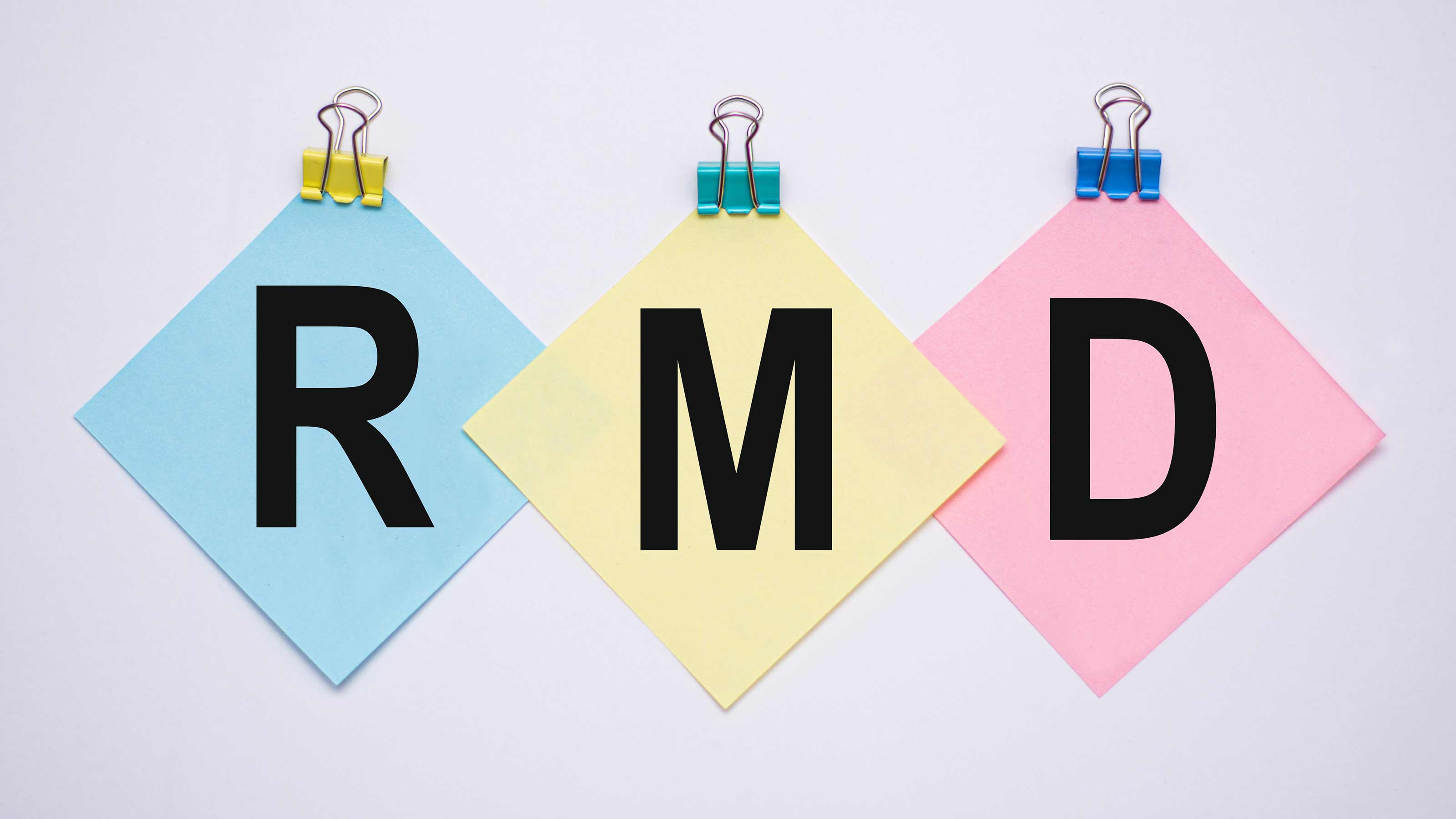5 Things Retirees Should Do Now
Follow these steps to make sure you have enough money.

Profit and prosper with the best of Kiplinger's advice on investing, taxes, retirement, personal finance and much more. Delivered daily. Enter your email in the box and click Sign Me Up.
You are now subscribed
Your newsletter sign-up was successful
Want to add more newsletters?

Delivered daily
Kiplinger Today
Profit and prosper with the best of Kiplinger's advice on investing, taxes, retirement, personal finance and much more delivered daily. Smart money moves start here.

Sent five days a week
Kiplinger A Step Ahead
Get practical help to make better financial decisions in your everyday life, from spending to savings on top deals.

Delivered daily
Kiplinger Closing Bell
Get today's biggest financial and investing headlines delivered to your inbox every day the U.S. stock market is open.

Sent twice a week
Kiplinger Adviser Intel
Financial pros across the country share best practices and fresh tactics to preserve and grow your wealth.

Delivered weekly
Kiplinger Tax Tips
Trim your federal and state tax bills with practical tax-planning and tax-cutting strategies.

Sent twice a week
Kiplinger Retirement Tips
Your twice-a-week guide to planning and enjoying a financially secure and richly rewarding retirement

Sent bimonthly.
Kiplinger Adviser Angle
Insights for advisers, wealth managers and other financial professionals.

Sent twice a week
Kiplinger Investing Weekly
Your twice-a-week roundup of promising stocks, funds, companies and industries you should consider, ones you should avoid, and why.

Sent weekly for six weeks
Kiplinger Invest for Retirement
Your step-by-step six-part series on how to invest for retirement, from devising a successful strategy to exactly which investments to choose.
I've heard much about the losses people have incurred in their retirement nest eggs. However, everyone seems to be addressing what people who are within a few years of retiring should do. No one is talking about those of us who already are retired. What should we do? I've lost 15% in the last two months, and I'm allegedly in low-risk investments.
I've received many letters from readers like you, who are already retired and wondering how to stretch their now-diminished nest eggs. Many are about to make some big mistakes. Instead, the following five steps can help you protect your retirement savings both now and in the future.
1. Make sure your investments match your time frame. You may be tempted to take a lot of your money out of the stock market and switch it to more conservative investments so you won't have to worry about this volatility anymore. But that is one of the worst things you can do. By selling most of your stocks or stock funds now, you'll lock in the losses and won't be able to benefit when the market finally recovers.
From just $107.88 $24.99 for Kiplinger Personal Finance
Become a smarter, better informed investor. Subscribe from just $107.88 $24.99, plus get up to 4 Special Issues

Sign up for Kiplinger’s Free Newsletters
Profit and prosper with the best of expert advice on investing, taxes, retirement, personal finance and more - straight to your e-mail.
Profit and prosper with the best of expert advice - straight to your e-mail.
Stocks have performed better than bonds and cash over the long run, which you still need to remember in retirement because you may have 20 or 30 years to go. If you panic and switch all of your money to fixed-income investments, then your portfolio will have a tough time keeping up with inflation, and you'll be more likely to outlive your retirement savings.
"This is not the time to abandon the fundamentals, and the fundamentals include cash for your immediate needs and growth for your long-term needs, which you still have even after you retire," says Stuart Ritter, a certified financial planner with T. Rowe Price. "You are not going to use all of your money in the next two years."
He recommends keeping about 55% of your retirement savings in a diversified portfolio of stocks and stock funds at age 65 and making changes to your portfolio based on your investing time frame, rather than short-term movements in the market. "They should not create a portfolio based on what the market has done in the past few months or what they're feeling in the past few weeks -- because they're really only a few months older," says Ritter.
See Three Ways to Cope in This Market and Retiring in Volatile Times for more information.
Meanwhile, keep a stash of money in a safe place for short-term needs, so you don't need to sell stocks when they're down to pay your bills or worry about the market's short-term movements. Marc Schindler, a certified financial planner in Bellaire, Tex., recommends keeping up to two years' worth of expenses in cash, such as a money-market account or short-term CD. He recommends GE Interest Plus or ING Direct. See our Credit & Money Management page for the top rates.
2. Withdraw less money than originally planned. You can't control the market; you can just make some moves to spread your risk. But you can decide how much money to withdraw each year, which affects how long your savings can last.
Many people start retirement by withdrawing 4% of their portfolios in the first year, then adjusting their withdrawals by 3% of that original balance every year to keep up with inflation. With that strategy, your retirement savings has an 89% chance of lasting for 30 years, according to an analysis by T. Rowe Price, which ran a 55% equity/45% bond portfolio through 10,000 potential market scenarios.
The study assumes that the investor retired on January 1, 2000, with $500,000 in savings. But if that diversified portfolio's value declined by 15.3% (which is what happened from January 1, 2000, to September 30, 2002) and the retiree continued to boost his annual withdrawals by 3% every year, his retirement savings would have only a 57% chance at that point of lasting for the remaining 27 years. And if he switched to a 100% bond portfolio on January 1, 2003, and continued withdrawals as planned, then the account would be worth only $337,000 on January 31, 2008, and his odds of success would shrink to 5%, according to the study.
If the retiree had maintained the 55% equity/45% bond portfolio but stopped increasing his withdrawals to keep up with inflation until January 1, 2004, however, he would continue to have an 89% chance that his retirement savings would last for 30 years. He could improve his chances of success even more if he withdrew just 4% of his reduced retirement savings, rather than 4% of the original balance.
You can run your own numbers through T. Rowe Price's Retirement Income Calculator to see how reducing your withdrawals can lower the odds of outliving your savings.
This also can be a great time to get a check-up from a financial adviser, who can review your investments, make any adjustments based on your time frame and risk tolerance, and help you calculate how much you can afford to withdraw. See Getting the Best Financial Advice for help finding a good adviser.
3. Cut your expenses. It might work in theory to lower your withdrawals while your investments are down. But how can you live on less money? "The thing you have the most control over -- and that can improve your prospects the most -- is how much you are spending," Ritter says.
Delay major purchases or travel, if possible. And take some of the same steps to slash your expenses and tighten your belt as everyone else is. See How to Create a Budget for tips on monitoring your expenses. And see Save Money on Practically Everything for ways to trim your expenses without having to make major sacrifices.
As a retiree, health care is probably one of your biggest monthly expenses. This is a great time of year to lower your health-care costs. Medicare beneficiaries have from November 15 to December 31 to sign up for a new Medicare Part D prescription-drug plan for 2009. Some of the largest plans are increasing their premiums and boosting other out-of-pocket expenses. Switching to another plan can save you a lot of money throughout the year.
And you can save even more money if you switch from brand-name to generic or other lower-cost drugs when possible. Go to the Medicare Prescription Drug Plan Finder, type in your drugs and dosages, and find the total out-of-pocket costs you'd pay for the year under each plan available in your area. Click on "use lower-cost drugs when available" to find out about generic equivalents or other low-cost alternatives.
Ask your doctor if you can make the switch before picking your 2009 Part D plan. The plan that is the best deal for brand-name drugs may not be the best deal for generics. And switching plans can make a huge difference in your costs for the year. A study by Destination Rx shows that the average senior with osteoarthritis, gastroesophageal reflux disease, high cholesterol and hypertension would save 88%, or $4,461.36, under the most popular Part D plans by switching from brand-name drugs to lower-cost alternatives.
Another option is to switch to a Medicare Advantage plan, which provides coverage for medical care and prescription drugs from a private insurer. The premiums are usually lower, but you may end up with larger out-of-pocket costs. Use the Medicare Options Compare tool to find the cost of plans available in your area.
4. Boost your income. Taking a part-time job just a few days a week can help you stretch your retirement savings -- even if you're earning much less than you did before retirement. The more money you earn, the less you'll need to withdraw from your retirement savings, and you might even be able to save more for retirement and delay taking Social Security. Take a couple who are withdrawing $20,000 a year from their investments. If they can get a job paying $10,000 a year, they can reduce the stress on their portfolio by 50%, says June Lantz Walbert, a certified financial planner with USAA.
The new job doesn't need to be drudgery; it can even be your dream job. Walbert calls it a "jobby" because it can be a cross between a job and a hobby. "You can be doing something you love, such as working at a golf course, home improvement or garden center or veterinary clinic," she says. In addition to earning money, you might get an employee discount that could reduce the expenses for your hobbies.
See Act II: Retire to a New Career for some ideas. Or you might be able to get a job for the holidays -– retailers and other businesses generally start hiring extra workers in November.
5. Increase your lifetime income. You don't need to withdraw enough money from your retirement savings to cover all of your expenses. Instead, you only need to withdraw the difference between your expenses and any income you already have coming in. Most people get regular checks from Social Security and perhaps a pension. Anything you can do to boost those payouts means you'll need to withdraw less money from your retirement savings every year.
There's good news for Social Security recipients: Benefits are increasing by 5.8% in 2009, which is the largest increase since 1982. And you can boost your annual payout even further if you can delay taking Social Security -- receiving an 8% credit for every year beyond your normal retirement age until you reach 70. If you qualified for full benefits of $1,600 a month at your normal retirement age of 66, then waiting until age 70 will boost your benefit by about 32%, to about $2,100 a month. You can run your numbers through the Retirement Estimator at the Social Security Web site to see how much you'd receive in extra benefits for every year you delay signing up for Social Security.
If you've already started receiving Social Security benefits, you still can increase your future retirement income. If you have some extra cash -- especially if you were thinking about using it to buy an immediate annuity -- you could pay back the amount that you've received from Social Security since you started getting benefits (interest-free) and start again at an older age -- which can boost your payouts for the rest of your life. See Secret Ways to Boost Social Security for details.
Profit and prosper with the best of Kiplinger's advice on investing, taxes, retirement, personal finance and much more. Delivered daily. Enter your email in the box and click Sign Me Up.

As the "Ask Kim" columnist for Kiplinger's Personal Finance, Lankford receives hundreds of personal finance questions from readers every month. She is the author of Rescue Your Financial Life (McGraw-Hill, 2003), The Insurance Maze: How You Can Save Money on Insurance -- and Still Get the Coverage You Need (Kaplan, 2006), Kiplinger's Ask Kim for Money Smart Solutions (Kaplan, 2007) and The Kiplinger/BBB Personal Finance Guide for Military Families. She is frequently featured as a financial expert on television and radio, including NBC's Today Show, CNN, CNBC and National Public Radio.
-
 How to Turn Your 401(k) Into A Real Estate Empire
How to Turn Your 401(k) Into A Real Estate EmpireTapping your 401(k) to purchase investment properties is risky, but it could deliver valuable rental income in your golden years.
-
 My First $1 Million: Retired Nuclear Plant Supervisor, 68
My First $1 Million: Retired Nuclear Plant Supervisor, 68Ever wonder how someone who's made a million dollars or more did it? Kiplinger's My First $1 Million series uncovers the answers.
-
 How to Position Investments to Minimize Taxes for Your Heirs
How to Position Investments to Minimize Taxes for Your HeirsTo minimize your heirs' tax burden, focus on aligning your investment account types and assets with your estate plan, and pay attention to the impact of RMDs.
-
 What Does Medicare Not Cover? Eight Things You Should Know
What Does Medicare Not Cover? Eight Things You Should KnowMedicare Part A and Part B leave gaps in your healthcare coverage. But Medicare Advantage has problems, too.
-
 15 Reasons You'll Regret an RV in Retirement
15 Reasons You'll Regret an RV in RetirementMaking Your Money Last Here's why you might regret an RV in retirement. RV-savvy retirees talk about the downsides of spending retirement in a motorhome, travel trailer, fifth wheel, or other recreational vehicle.
-
 Estate Planning Checklist: 13 Smart Moves
Estate Planning Checklist: 13 Smart Movesretirement Follow this estate planning checklist for you (and your heirs) to hold on to more of your hard-earned money.
-
 Should You Rent in Retirement?
Should You Rent in Retirement?Making Your Money Last Renting isn't right for all retirees, but it does offer flexibility, and it frees up cash.
-
 6 RMD Changes We Could See This Year
6 RMD Changes We Could See This YearMaking Your Money Last Congress is considering two bills that would make major changes to required minimum distributions. Could your RMDs be affected?
-
 A Kiplinger-ATHENE Poll: Retirees Are Worried About Money
A Kiplinger-ATHENE Poll: Retirees Are Worried About MoneyMaking Your Money Last Concerns about recession, inflation and health care costs weigh on retirees and near retirees.
-
 The Retiree's Guide to Going Back to Work
The Retiree's Guide to Going Back to WorkMaking Your Money Last Inflation and a bear market have prompted some retirees to change course.
-
 Does an Annuity Belong in a 401(k)?
Does an Annuity Belong in a 401(k)?Making Your Money Last Unlike pensions, 401(k)s place the risk of outliving savings squarely on the retiree's shoulders. Find out what's right for you.